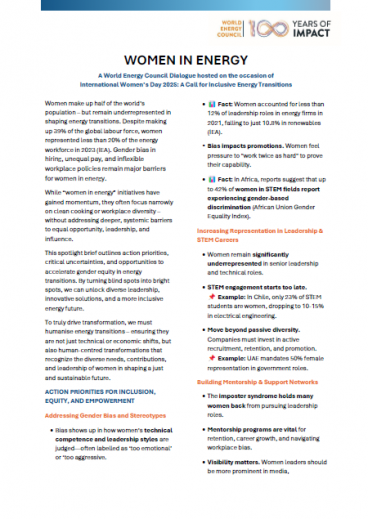In the plenary session opened by François de Rugy, Jean Eudes Moncomble, Secretary General of the Conseil Français de l’Énergie (French Member Committee), partner of the MEU Paris, gave a presentation on Europe’s Energy Challenges. He highlighted to participants to macroeconomic and strategic issues for Europe’s Energy future and building a sustainable world.
Nathalie Loiseau, French Minister for European Affairs, also spoke; in a very lively and open discussion with European Commissioner, Pierre Moscovici, explained the role of his work and how he conceived his mission.
MEUs are simulations of the European legislative process and the Union's institutions. These events (more than fifteen in Europe), bring together young students and young workers from all over the continent to discover how these institutions work and, more broadly, to share and exchange ideas on issues high on the agenda in Europe. By observing MEPs or Council ministers debating real European legislative proposals, over four days, participants have a unique opportunity to experience Europe and better understand it.
The simulation began with an academic day organised in three stages: a presentation of the Union’s institutions by the Maison de l’Europe in Paris and a reminder of the procedural rules used during the simulation. Round tables convened experts and politicians from all walks of life who debated selected topics which provided participants with elements of understanding and analysis of European way of working.
The next three days were also devoted to simulation. Two exciting topics were at the heart of the simulations: The proposal for a Directive on the protection of persons reporting breaches of Union law. This text aimed at protecting whistleblowers, reflects recent developments in French law and its preparation has required a high level of commitment from national parliamentarians.
The second, a proposal for a Regulation concerning measures to ensure security of natural gas supply. This text is of interest both in terms of the general issues it covers such as relations with producer countries; the importance of gas in the energy mix, regional cooperation within the Union; and the concrete measures it contains - risk management plans, and the dissemination of information from the private sector to public decision-makers.
Each institution (Parliament and Council) began the study of one of the texts [the two proposals above] by presenting the European Commissioner in charge, then debated it and fined tuned it at first reading. The two chambers then exchanged their respective amended texts and proceed to a second reading, amending the proposals again. Finally, each text returned to the chamber where it was initially presented for debate and a vote on the final version.






_-80_result_688_387_s_c1_c_c.jpg)

